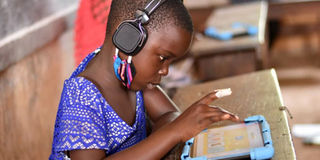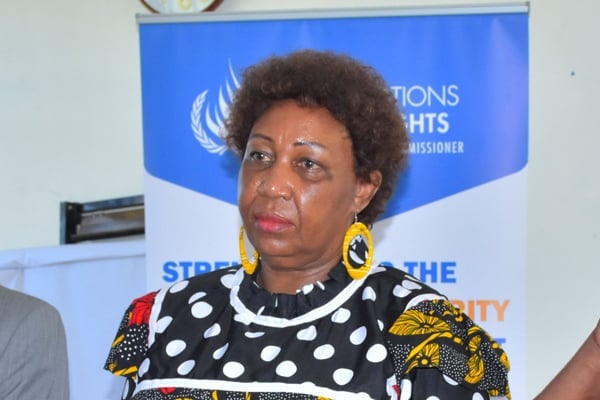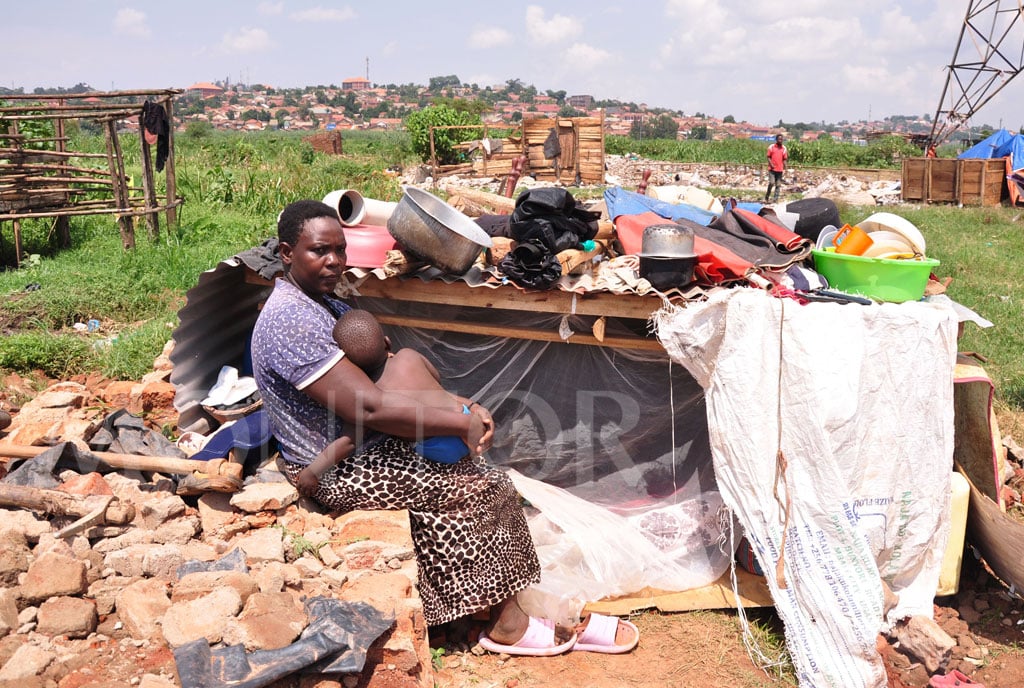Prime
Online learning exposes children to sex material - Gender ministry

A pupil operates a tablet at the launch of e-learning at Nalongo Church of Uganda in Luweero District on August 18. PHOTO/DAMALI MUHKAYE
What you need to know:
- Government last month announced plans to procure tablets for pupils in Universal Primary Schools (UPE) across the country. The move intends to facilitate digital learning as a way of improving literacy and numeracy during the Covid-19 pandemic.
- Mr Alex Kakooza, the Permanent Secretary at the Ministry of Education, said they have partnered with the War Child Holland, a non-governmental organisation, to run a pilot study on digital learning. He said the study started with 50 tablets that have been distributed to P3 pupils at Nalongo Primary School in Luweero District.
The Ministry of Gender yesterday reported that the government’s online learning programme has exposed children to sex materials, escalating incidences of incest, defilement and other sexual abuses in homes, especially against girls.
Ms Lydia Najjemba Wasula, the coordinator of the implementation unit at the ministry, said the outbreak of coronavirus in March found government unprepared and they are now on the drawing board to counter the emerging issues arising out of the crisis.
She said while they are yet to conduct a survey on the impact of Covid-19 on families, there are already indicators showing increased domestic violence, with police reporting about 520 defilement cases in Kampala alone.
Ms Wasula made the remarks yesterday during a training in Kampala organised by Education Advocacy with a Difference Platform, a local NGO, on standard operating procedures to enable reopening of education institutions.
She added that parents have failed to protect their vulnerable children at home during the lockdown and now government is struggling to contain the rising teenage pregnancies, with increasing incidence of sexual abuses.
Ms Wasula said although she appreciates technology, she called upon parents to rise up to the task and monitor activities of their children on Internet.
She revealed that she connected her house to Wifi to enable her children follow online learning currently conducted by Ministry of Education but was shocked to learn that some of the materials her children were downloading were inappropriate for their age.
“Some things I have found them downloading are traumatising. I don’t even have the energy to tell them what I find. We think we are supporting them but we are abusing them online. This is a test for us. We have been with the children for six months. I can confess I have failed to teach my own children even when I am a professional teacher,” Ms Wasula said.
She revealed that their previous reports before the pandemic showed that children were more abused in their homes as schools came second and communities took third position.
Government initiative
Government, through the Ministry of Education, introduced online learning for continuity of learning after students were sent home to prevent the spread of coronavirus.
A Makerere University lecturer, Prof Joseph Oonyu, said while the pandemic has disrupted learning and increased gender based violence, it has also created an opportunity for communities to rethink the education system and what should be improved. It has further exposed the inequalities in education between the poor and the rich, the rural and urban, he said.
“Some schools are struggling. We need to change the way we support learning. How do we prioritise standard operating procedures and ensure learners are safe? There is fear among learners, parents and teachers how to keep safe,” Prof Oonyu noted.
Praise Arinda, a Senior Six student at St Joseph’s SS, Nsambya, asked government to postpone reopening of schools to January so that parents and learners have ample time to prepare to complete the syllabus that was halted midway when the schools were closed in March.
Dr Kedrace Turyagyenda, the head of the Directorate of Education Standards, said the school reopening pronouncement will only be made by President Museveni.
She noted that a number of schools were already struggling without basic requirements before coronavirus outbreak and warned that only those which meet the standards will be allowed to resume.
Schools warned
“A standard is a standard. It must be uniform in north, south ….. If you don’t meet it, you don’t move forward. A lot of schools don’t have minimum standards. When you go to inspect, they prepare and borrow what they don’t have. Immediately you leave, they take it back. When you return without informing them, you find there is nothing of what they had presented,” Dr Turyagyenda said.
She added: “Part of the reasons we are still at home is because we are rebellious as Ugandans. We are non-compliant. We were told that this virus affects the nose and throat system and spreads through droplets from our nose, mouth and we need to have masks. But as soon as we started opening to move to towns, people don’t have masks.”




